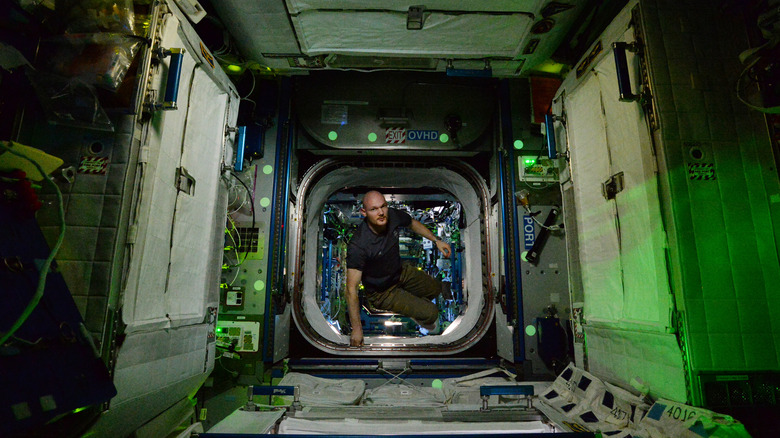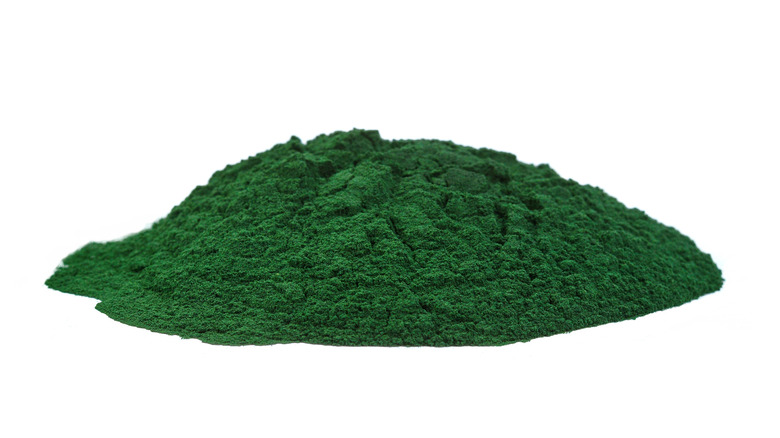The Real Reason Astronauts Take Spirulina Supplements
Plenty of people spend their childhood dreaming about flying away to the stars. The life of an astronaut seems like one full of adventure, exploration, and excitement. It isn't until we get older that we find out about the hard work, dedication, and risks that go along with all of the glamour.
NASA lists five major risks astronauts face when traveling to or through outer space, surprisingly few of which came close to the risks people expect from movies and their imaginations. Rather than rogue asteroids or cascading computer glitches, astronauts need to be more concerned with things like radiation exposure and the way their bodies react to being in low or zero-gravity situations for extended periods of time.
Nutrition is another major concern for astronauts and the people who plan their missions. Unlike Earth's much more open biological system, a spacecraft — for now, at least — is very limited and closed. Astronauts cannot simply forage or grow their own food to fill any gaps in the provided rations. Sending materials into space is also incredibly expensive, so rations must be carefully curated (via Insider). Enter spirulina, a common supplement for astronauts that leaves most people scratching their heads and asking why algae supplements are among the carefully chosen supplies sent up to space.
Easy to grow anti-inflammatory
Many people may be surprised to find that spirulina is an algae — and even more surprised to learn that it has been a food additive in many countries for centuries (via Harvard Health). A 2010 report published in the journal Evidence-Based Complementary and Alternative Medicine revealed why it caught NASA's interest: Spirulina has anti-inflammatory properties and modulated immune functions.
An anti-inflammatory algae might seem a bit too mundane to land on NASA's radar. But as a 2018 study in Frontiers in Immunology reported, inflammation is a huge risk for astronauts. Poor nutrition can lead to increased inflammation and oxidative stress. These processes damage an astronaut's DNA, causing even more inflammation and oxidization. Unless stopped, this cycle will eventually leads to chronic inflammation and, in dire cases, a complete shutdown of the body's immune system. Spirulina prevents the cyle from starting in the first place.
The University of Florida's Institute of Food and Agricultural Sciences reported in 2020 that they planned to grow spirulina in space for up to six months. If the algae remains stable, it could then be grown on future flight missions for a high-protein, anti-inflammatory addition to ever astronaut's diet.


